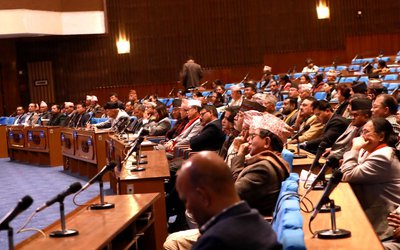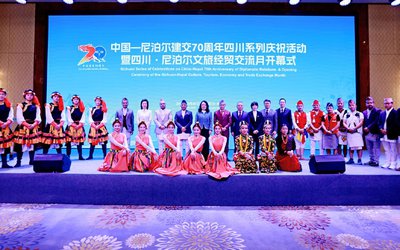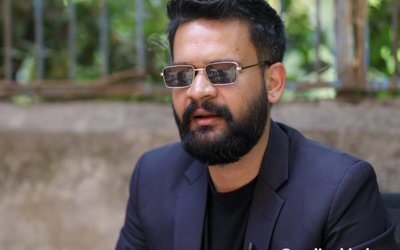More on News





The U.S. Embassy in Nepal celebrated the 25th anniversary of the landmark Americans with Disabilities Act (ADA) legislation. The event highlighted the Embassy’s year-long disability-rights programming on issues such as inclusive tourism, elderly access to services, disability rights guidelines in the draft constitution, and developing the capacities of youth with disabilities.
The Embassy’s July 27 event focused on inspiring people and governments to see disability through the lens of equality and opportunity. About 100 participants attended the event, including activists, aid workers, volunteers, and many people with disabilities.
At the event, Nepal’s disability rights activists discussed ways to better the lives of people living with disability. Sudarson Subedi, president of the National Federation of Disabled Nepal (NFDN) and Kalpana Shrestha, Nepal Under-Secretary for Disabilities, were both featured speakers at the event, presenting the accomplishments and challenges of Nepal’s disability rights movement. Google.org’s Micah Berman called on Nepalis to participate in Google’s $20 million open call seeking proposals on using technology to increase the independence of people living with disabilities. In addition, Amina Bomjan, Deputy Country Director of Handicap International (HI), underscored the importance of strengthening physical rehabilitation services and integrating people with disabilities (PwDs) into productive civilian life. USAID/Nepal is partnering with Handicap International on a project to build up the rights of PwDs in Nepal called Strengthening Rehabilitation in District Environment (STRIDE).
According to a press release issued by Public Affairs Section Embassy of The United States, the U.S. Embassy in Nepal is a disabled-friendly space that is accessible for people with physical impairments, including those in wheelchairs, which allows everyone to safely and independently move throughout the building.
The Americans with Disabilities Act (ADA) was signed on July 26, 1990 by President George H.W. Bush. For the past 25 years, the ADA has removed barriers and ensured equality of opportunity, full participation, independent living, integration, and economic self-sufficiency for all persons with disabilities. The ADA grew out of the civil rights movement, and from a recognition that disability rights are civil rights and thus, they are human rights. As Secretary of State John Kerry recently wrote “[In] too many countries, what we have done in the United States through the Americans with Disabilities Act (ADA) – which for 25 years this month has protected the 19% of Americans with disabilities from disability-based discrimination – is far from reality.”




